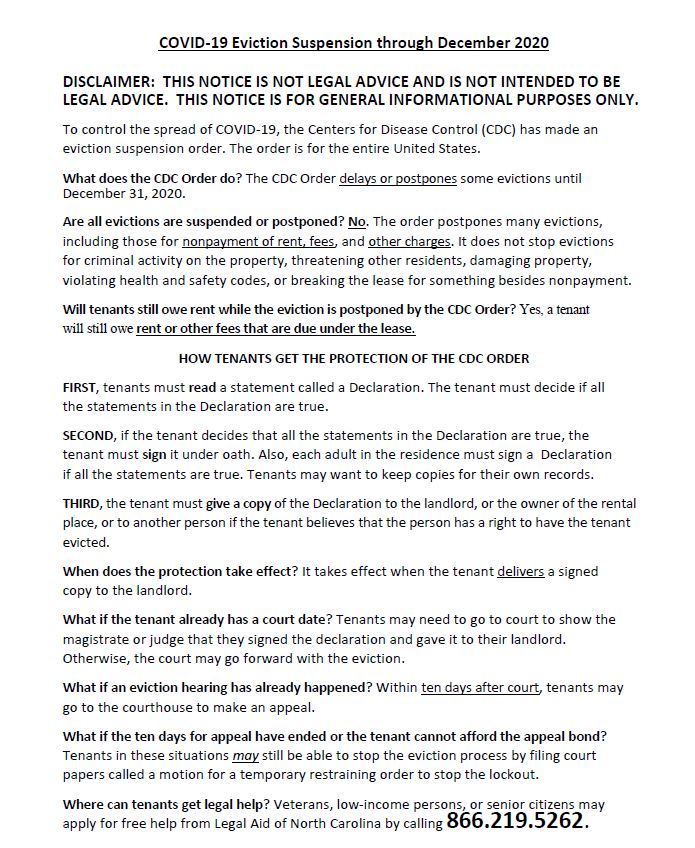 The U.S. Centers for Disease Control (CDC) has ordered the nationwide suspension of certain residential evictions for nonpayment of rent, fees, and other charges. The order takes effect on September 4, 2020, and lasts through December 31, 2020. It is estimated that the moratorium could apply to as many as 40 million tenants across the country who would otherwise be at risk of eviction due to loss of employment or income as a result of the COVID-19 pandemic.
The U.S. Centers for Disease Control (CDC) has ordered the nationwide suspension of certain residential evictions for nonpayment of rent, fees, and other charges. The order takes effect on September 4, 2020, and lasts through December 31, 2020. It is estimated that the moratorium could apply to as many as 40 million tenants across the country who would otherwise be at risk of eviction due to loss of employment or income as a result of the COVID-19 pandemic.
The moratorium applies only to tenants who present a signed declaration to their landlords (a sample is available by clicking here).
To sign the sworn declaration and be protected by the moratorium, tenants facing eviction for nonpayment of rent must make below a certain income and meet other factors set out by the CDC. The sworn declaration must show that the tenant meets the eligibility requirements, including that:
- the tenant’s 2020 income is expected to be less than $99,000 (or $198,000 for a couple filing a joint return) or that the tenant did not have to pay income tax in 2019 or that the tenant received a stimulus check;
- the tenant is unable to pay rent due to income loss or extraordinary out-of-pocket medical expenses;
- the tenant would become homeless or need to double-up if evicted;
- the tenant will still make partial payments (“using best efforts to make timely partial payments that are as close to the full payment as the individual’s circumstances may permit, taking into account other non-discretionary expenses”).
While the order suspends evictions for nonpayment of rent and other fees and charges, it does not apply to those based on criminal conduct; threatening the health or safety of other residents; damaging or posing an immediate and significant risk of damage to property; violating an local building code or health or safety ordinance; or violating other lease requirements. The order also does not apply to foreclosures.
The CDC’s moratorium will prevent certain evictions for qualified individuals through the end of 2020. However, tenants will still be liable for any rent or other payments during this period. As a result, some observers have noted that the proposal, while providing important short-term housing stability, may just postpone a wave of evictions until January 2021.
For additional information or assistance, contact Legal Aid of North Carolina at 1-866-219-5262 or online at www.legalaidnc.org.
